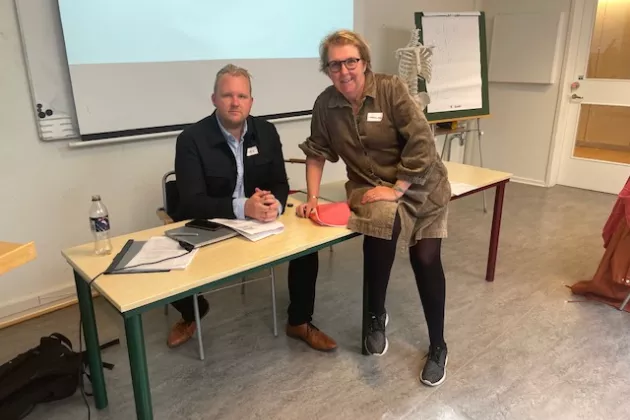Charlotte Löfqvist has had the assignment as study coordinator since January 1, 2019.
- Being a mentor and contributing to newly graduated doctors having the opportunity to build up their CV and develop within the academy, both pedagogically and administratively, has been very nice. We have developed the postdoctoral assignments within SWEAH a lot during my four years, which has been significant for the graduate school.
Interested in pedagogical matters
When the study coordinator position was announced, Charlotte applied for it because she had previous experience of being responsible for CASE's research school and thought it was very interesting.
- I have always had a pedagogical interest and working with smaller study groups and course activities with doctoral students is very rewarding. It has also been a pleasure to collaborate with ambitious and positive SWEAH alumni full of ideas.
- I have learned at least as much as they have from working with them. The funnest is clearly meeting with all the doctoral students and their exciting projects that I have been able to take part in over the years. The interdisciplinary and international composition of students is also very fun and enriching.
A challenge that the students are at different stages
She says that what has been challenging also has to do with the diversity and the interdisciplinary. The students have in common that they are all active in research related to older people and health, BUT represent a wide range of research areas. Although the majority are at the beginning of their PhD education when they are admitted to SWEAH, they are after all at different stages of their education, which also makes planning challenging, as of course they have different needs and are receptive to slightly different things at different stages.
- It makes it a bit tricky to set up courses and seminars so that it feels meaningful and rewarding for everyone.
Many good memories
She has many positive memories from her time in SWEAH.
- It has been particularly fun and rewarding to prepare conferences and joint symposia. Then I felt a great sense of pride of these capable, ambitious and high-achieving people.
How do you see the future of SWEAH?
- SWEAH is absolutely needed. The students testify to the importance of building networks and that they become equipped for interdisciplinary collaborations in a very good way. It has great significance for their future research, which will increasingly have to address complex societal challenges, where cooperation between actors and research subjects is required. The development of the SAIN alumni network is a direct effect of network building among the alumni, which is a very exciting and positive development.
And what is happening now in your life?
- I look forward to owning my own time and letting my family and my seven grandchildren take up a little more space in my life. And much else of course.


